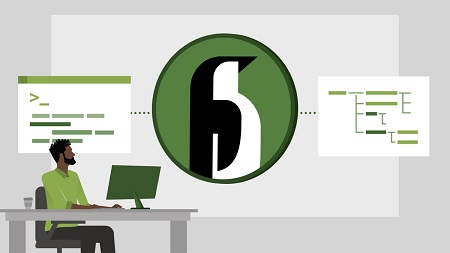
English | MKV | AVC 1280×720 | AAC 44KHz 2ch | 3 Hours | 397 MB
While the Linux operating system works with a graphical desktop interface much like Windows or macOS, with Linux, most of the system administration is done in the shell. Using the command line in the shell gives you the power to do tasks that would be more difficult using other methods, so having a solid grasp on how to use the shell can help you work faster and be more productive. In this course, Grant McWilliams provides an introduction to the Linux command line. He teaches you how to customize your shell, and shows some powerful shell tricks and shortcuts that can increase your speed and efficiency using the command line. Grant also explains how to create complex administration tools by stacking together simpler commands using named and unnamed pipes and redirects; how to start, pause, and end processes; and how to schedule one-time jobs and recurring jobs, and more.
Table of Contents
1 be more productive in the linux shell
2 what you should know
3 about linux shells
4 about linux terminals
5 shell pathname tricks
6 shell history tricks
7 configure shell history
8 variables and shell environment
9 make shell variables persistent
10 pattern matching with globs
11 globs exercise
12 pattern matching with extended globs
13 extended glob exercise
14 escape characters and quotes
15 brace expansion
16 command and variable substitution
17 command input and output
18 connecting programs with pipes
19 file redirects and tees
20 combining pipes redirects and tees
21 command lists and subshells
22 introduction to processes
23 monitor processes using ps
24 monitor processes in real time
25 monitor processes graphically
26 manage processes
27 process priority
28 manage process jobs
29 introduction to system services
30 get systemd service status
31 manage systemd services
32 make systemd services persistent
33 introduction to job scheduling
34 one time jobs using at and batch
35 about cronjobs
36 recurring user jobs using cron
37 recurring system-wide jobs using cron
38 limit access to at and cron
39 using systemd timer units
Resolve the captcha to access the links!